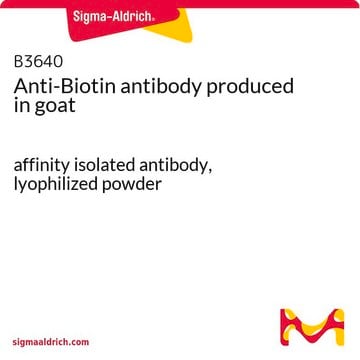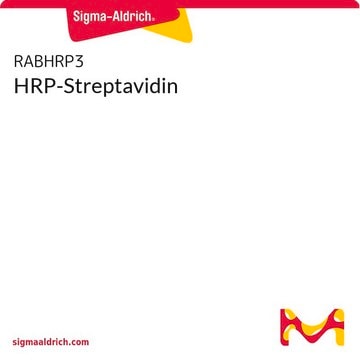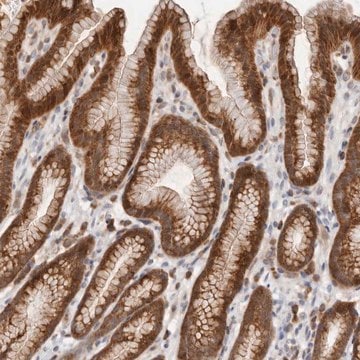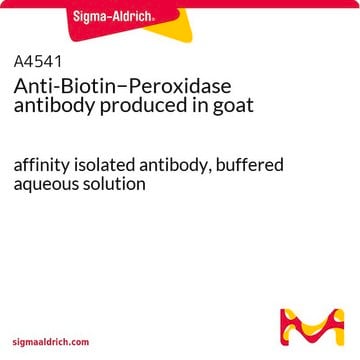A1559
Monoclonal Anti-Biotin–Agarose antibody produced in mouse
clone BN-34, purified immunoglobulin, PBS suspension
Synonym(s):
Monoclonal Anti-Biotin
About This Item
Recommended Products
biological source
mouse
recombinant
expressed in mouse cell line
conjugate
agarose conjugate
antibody form
purified immunoglobulin
antibody product type
primary antibodies
clone
BN-34, monoclonal
form
PBS suspension
extent of labeling
2 mg antibody per mL resin
technique(s)
ELISA: suitable
immunohistochemistry: suitable
immunoprecipitation (IP): suitable
western blot: suitable
isotype
IgG1
capacity
0.15-0.3 μmol/mL, agarose binding capacity (biotin-ligand conjugate)
application(s)
research pathology
shipped in
wet ice
storage temp.
2-8°C
target post-translational modification
unmodified
Looking for similar products? Visit Product Comparison Guide
Related Categories
General description
Immunogen
Application
Chromatin immunoprecipitation (1 paper)
- pulldown assay
- coimmunoprecipitation
- chromatin immunoprecipitation
- purification of biotinylated compounds and biotin-containing compounds
In some applications, localization of biotinylated probes with avidin produces high background levels. Anti-biotin reagents may be substituted for avidin to decrease non-specific binding.
In some applications, localization of biotinylated probes with avidin produces high background levels. Anti-biotin reagents may be substituted for avidin to decrease non-specific binding.
Physical form
Preparation Note
Other Notes
Disclaimer
Not finding the right product?
Try our Product Selector Tool.
Storage Class Code
10 - Combustible liquids
WGK
WGK 3
Flash Point(F)
Not applicable
Flash Point(C)
Not applicable
Certificates of Analysis (COA)
Search for Certificates of Analysis (COA) by entering the products Lot/Batch Number. Lot and Batch Numbers can be found on a product’s label following the words ‘Lot’ or ‘Batch’.
Already Own This Product?
Find documentation for the products that you have recently purchased in the Document Library.
Related Content
Investigate in vitro protein-protein interactions with pull-down assays, utilizing affinity, GST pull-down, TAP, and co-immunoprecipitation methods.
Investigate in vitro protein-protein interactions with pull-down assays, utilizing affinity, GST pull-down, TAP, and co-immunoprecipitation methods.
Investigate in vitro protein-protein interactions with pull-down assays, utilizing affinity, GST pull-down, TAP, and co-immunoprecipitation methods.
Investigate in vitro protein-protein interactions with pull-down assays, utilizing affinity, GST pull-down, TAP, and co-immunoprecipitation methods.
Our team of scientists has experience in all areas of research including Life Science, Material Science, Chemical Synthesis, Chromatography, Analytical and many others.
Contact Technical Service







